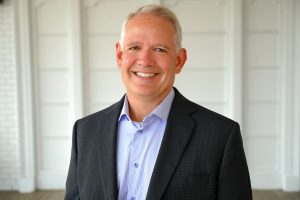About 50 students from four high schools in Hartford and East Hartford have been traveling by bus to UConn’s Storrs campus for several Saturdays this spring to learn the basics of personal finance. Among those lessons are how to open a bank account, managing personal spending, and ways to fund a college education.
The students gather at the School of Business, where UConn finance students teach them financial life skills and help them apply for college, including finding financial aid and applying for student loans.
Welcome to UConn’s Financial Literacy Innovation Program, better known as FLIP. The innovative program run by the School of Business’s Diversity Initiatives Office is designed to give economically disadvantaged students a path to a better life. Besides learning important financial life skills, these students are getting a chance to see college up close and learn from a group of UConn students who reflect the diversity of their communities. Those who finish the course and successfully apply to UConn are eligible for a scholarship through the program.
Under the hybrid, eight-week program, the students come to UConn for four Saturdays during the semester. On alternating weeks, they login from home for remote sessions.
Currently, the free program is only open to students from Hartford’s three public high schools and Pathways Magnet School in East Hartford. The nonprofit Ready CT assisted with recruiting Hartford students for the program. But organizers hope to greatly expand FLIP in the future to reach many more urban high school students in Connecticut.

The program is funded by a $500,000 gift from alumnus Joseph LaBrosse ’85 (BUS) and his wife, Kathleen LaBrosse. The LaBrosses hope the program will help address inequalities facing students in struggling Connecticut schools.
“One of the biggest problems holding back the United States is the disparities in the inner cities,” LaBrosse says. “To me, education is the best answer to solve this problem. Since UConn is the preeminent, public educational institution in Connecticut, I felt that the University had a responsibility to help address this issue. A UConn business education is one of the best ways to help solve the economic problems faced by many of these high school students.”
School of Business Dean John A. Elliott says the School of Business is devoted to supporting the educational needs of the state and shaping the workforce of tomorrow.
“Through FLIP, we share the basics of personal financial literacy so students can navigate their personal journey wisely,” Elliott says. “Our goal is to empower students so that they can see how and why they should invest in themselves and their own education.”
Students who complete the program and are accepted to UConn are eligible for a scholarship designed to bridge any gap students face after applying for other financial aid.
“For these kids, even though they receive scholarships or financial aid, they still are unable to attend college because they lack the last $5,000 or $10,000,” LaBrosse says. “It’s a daunting task for them and that shortage stops many from going to college. We wanted to try to bridge that gap by giving them a scholarship, helping them be successful once they get to UConn, and making sure they don’t graduate with debt they can’t pay off.”
The program debuted in spring 2020 but was cut short and forced online by the pandemic. Shortly thereafter, seniors Joshua Onyirimba, of West Hartford, and Melvin Andre, of Stamford, launched a similar program called the Financial Educators Council at Capital Preparatory Magnet School in Hartford. Both programs subsequently joined forces and Onyirimba and Andre, along with other UConn students, are now instructors and mentors in the FLIP program.
“Increasing high schoolers’ exposure to higher education is very important to us because we hope to increase representation in future generations,” Onyirimba says. “I really wasn’t aware of the large number of students who don’t really see college as an option. By getting them on campus, showing them that it is possible, and by giving them tips on how to make it possible, we thought that this would help address that problem.”
Besides helping to lift students out of poverty, LaBrosse hopes the program eventually will cultivate a more diverse workforce for businesses in Connecticut. Some businesses are already participating in the FLIP program. The Hartford Insurance Group is scheduled to host an end-of-semester party at its headquarters for the students.
LaBrosse, a commercial real estate developer, believes businesses have a responsibility to help address the issue. He hopes businesses and other alumni will step up and donate to support FLIP so the program can expand and help change the lives of even more Connecticut high school students.
Find out more about FLIP here.


